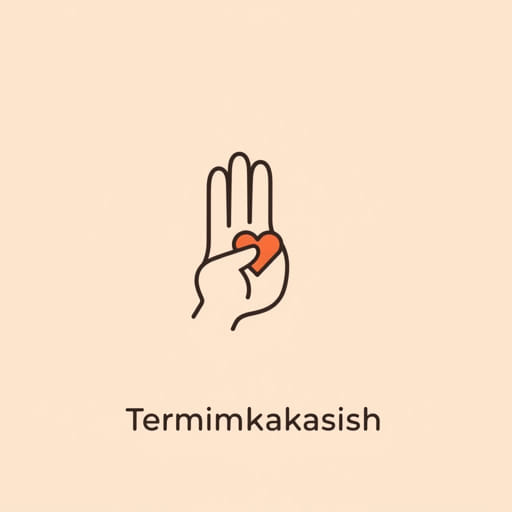In everyday English conversations, especially among young people or in casual social media settings, the way people say thank you has evolved far beyond the standard thank you or thanks. These days, English slang or informal expressions are used more frequently to show gratitude in a fun, relaxed, or even humorous way. Whether you’re texting a friend, commenting on a post, or simply responding in casual conversation, learning how to say thank you in slang or informal English can make you sound more natural and fluent. This topic explores various ways to say thank you in English slang, giving you the vocabulary and context to use them effectively.
Understanding Slang and Informal Language
Slang language is often created and used by specific groups or communities to express ideas in a more personal or playful way. It adds color to language and keeps conversations lively. When it comes to gratitude, English slang includes a wide range of expressions that go beyond the traditional phrases. These expressions may not always be found in textbooks, but they are widely used in daily interactions.
Why Use Slang Expressions for Thank You?
Using slang expressions for gratitude serves several purposes:
- It helps you sound more fluent and native-like in casual conversations.
- It makes your communication more relatable and modern.
- It allows you to connect better with peers, especially in informal settings.
Common Slang Ways to Say Thank You in English
1. Thanks a ton / Thanks a bunch
These are playful and exaggerated ways of saying thank you. They are casual but still polite.
Example: Thanks a ton for helping me move yesterday. You’re the best!
2. Much obliged
This expression is a bit old-fashioned but still used for humorous or dramatic effect.
Example: Much obliged, kind sir!
3. Props
Props is slang for giving recognition or appreciation. It can be used as a quick way to say thank you.
Example: Props to you for finishing that project so fast!
4. Shout-out
This is used when publicly thanking someone, especially on social media.
Example: Big shout-out to my friend for getting me tickets to the concert!
5. Big ups
Originally from Jamaican English and hip-hop culture, big ups means giving respect and thanks.
Example: Big ups to everyone who showed up for the charity event.
6. Mad thanks / Mad love
Mad in slang can mean a lot of or extremely. These phrases express deep gratitude.
Example: Mad thanks to all my followers for the support!
7. Cheers
While cheers is commonly used when clinking glasses, it’s also slang for thank you, especially in British English.
Example: Cheers for covering my shift last night!
8. Appreciate it / Preciate it
This is a quick and informal way of showing gratitude. When spoken, people often drop the first syllable and just say preciate it.
Example: Hey man, preciate it. You really saved the day.
9. Ta
Short and sweet, ta is British slang for thank you. It’s used mainly in the UK and Australia.
Example: Ta for the cuppa!
10. Good looking out
This phrase is used to thank someone for helping or watching out for you.
Example: Good looking out, bro. I totally forgot my wallet!
Using Slang Thank You in Different Situations
Casual Conversations
In text messages or informal chats, slang phrases fit perfectly:
- Yo, big ups for the ride today!
- Thanks a bunch for that meme, cracked me up!
Social Media and Comments
Slang makes gratitude sound more personal and fun in online interactions:
- Shout-out to @alex for the amazing pics!
- Mad love to everyone who joined the live stream!
Group Chats and Friend Circles
Among friends, slang thank-you phrases strengthen bonds and show appreciation casually:
- Props for the help on that quiz, man.
- Cheers for covering for me at work today!
Things to Remember When Using Slang Gratitude
- Slang is best used in informal or casual situations. Avoid using it in professional or formal emails unless the tone is relaxed.
- Make sure the person you’re talking to understands slang; not everyone is familiar with modern or regional expressions.
- Balance slang with standard English when needed. Being too informal in the wrong context can come off as unprofessional.
Benefits of Knowing Slang for Thank You
Learning how to express gratitude with slang opens up more natural and engaging communication. You’ll be able to connect with peers, understand popular culture, and respond appropriately in social contexts. It’s not just about words it’s about feeling confident and expressive in the language.
Practice Makes Perfect
Here are some sample conversations to help you practice:
Example 1
A: I brought you some coffee.
B: Aww, thanks a ton! You’re the best.
Example 2
A: I uploaded the notes for today’s class.
B: Good looking out! I totally missed the lecture.
Example 3
A: I covered your shift last night.
B: Mad thanks, man. I owe you one!
There are many creative and fun ways to say thank you in English using slang. From cheers to props, each expression adds a different flavor to your message. Mastering these slang expressions helps you blend in naturally with native speakers, especially in informal or digital settings. Whether you’re commenting on a friend’s story, thanking someone in a text, or just chatting casually, knowing how to say thank you in a relaxed and youthful way can elevate your communication skills.
